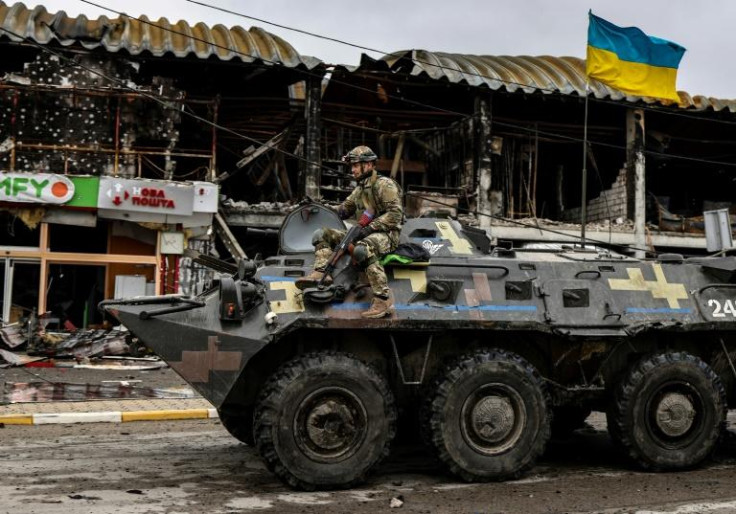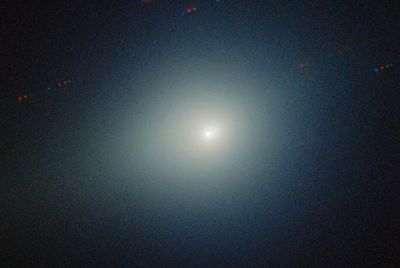Russia continues to charge Ukrainian Prisoners of War in unofficial courts
UK government accused Russia of participating in war crimes after Ukrainian Prisoners of War are sentenced to more than 10 years imprisonment.

In June this year, Russia's Southern District Military Court in Rostov-on-Don started criminal proceedings against 13 men and nine women soldiers from the "Azov" brigade in Ukraine.
The Azov brigade was once well-known for being a far-right neo-Nazi organisation. Recently, military officials claim that the group has evolved.
The Azov Brigade are a formation of neo-Nazis and Ukrainian National Guards that engage in military functions and work under the Armed Forces of Ukraine. After being besieged for 80 days at the Azovstal Iron and Steel Works in May 2022, nearly 2,000 Azov soldiers surrendered themselves to the Russian authorities.
The Russian government have since dubbed the Azov Brigade a "terrorist organisation".
Each Azov defendant was prosecuted under Russia's criminal code for multiple charges. It was also reported that the soldiers were being charged for their alleged actions that set out to overthrow Russia-backed authorities in the Donetsk region of Ukraine.
The defendants have also been charged with undergoing training with the intent to carry out terrorist activities.
The Geneva Conventions ensures that prisoners of war cannot be prosecuted for any crimes that they have committed prior to their incarceration, meaning that Russia is unable to prosecute all Ukrainian soldiers who have been captured.
The prosecution of these soldiers for participating in conflict has been labelled a war crime by international authorities, and the UK have continued to condemn Russia for its sham trials against Ukrainian prisoners of war.
📷Prisoner exchange, 45 fighters of Azov Brigade of Ukrainian National Guard and Azovstal defenders, returned home today.#UkraineRussiaWar #Azov pic.twitter.com/Oc9LLDPG0v
— MilitaryLand.net (@Militarylandnet) May 6, 2023
Maksym Butkevych is a Ukrainian Human Rights Activist, Journalist, and member of the Ukrainian military. Recently, Butkevych was captured by Russia and sentenced to 13 years imprisonment by an unofficial supreme court in Russian-occupied Luhansk in Ukraine.
Amnesty International's Deputy Regional Director for Research, Eastern Europe and Central Asia, Denis Krivosheev expressed: "A court in Moscow has upheld the decision made during a sham trial which was held in secret, against a defendant who had limited contact with the outside world, including his lawyer, and was apparently forced to incriminate himself on video for a crime which Maksym Butkevych simply could not have committed."
Prior to the escalation of the Russia-Ukraine conflict in February 2022, Butkevych worked with non-governmental organisations in Ukraine, that provided refugees in the country with support and protection.
Following Russia's full-scale invasion of Ukraine, Butkevych volunteered to fight with the Ukrainian Armed Forces and was put in charge of a platoon until he and his brigade were captured on the front line.
Speaking of the Journalist's incarceration, a spokesperson for the Foreign, Commonwealth and Development Office said: "We are concerned by the treatment of Ukrainian prisoner of war Maksym Butkevych who was sentenced to 13 years in prison by the so-called Luhansk People's Republic and has had an appeal against this sentence denied by a Moscow court."
"This sham trial lacks legitimacy, and we call on the Russian Federation to abide by international humanitarian law and treat Mr Butkevych appropriately as a prisoner of war according to the Geneva Convention," they continued.
Here is my friend and colleague, Ukrainian journalist and human rights defender Maksym Butkevych. When the full-scale invasion started Maksym became a soldier. Now he is a POW and in occupied Luhansk. #FreeMaksymButkevych
— Tetiana Bezruk (@t_bezruk) August 22, 2023
📷Graty pic.twitter.com/nHs6s2AKjX
Since his arrest, Butkevych's family have been running a campaign, calling for his release and for justice to be served. The trending campaign reads #FreeMaksymButkevych.
Like several other Ukrainian prisoners of war being held by Russia, including the Azov Brigade, Mr Butkevych has had little, to no, contact with the outside world since being captured.
There have also been reports of Ukrainian prisoners of war being killed, beaten and tortured by their interrogators and other guards.
Maksym Butkevych's interrogator has only been shown wearing a balaclava, hiding his face.
Amnesty International released a statement that emphasised: "Russia has consistently violated fair rights trial of war throughout its war of aggression against Ukraine."
Amnesty International continued to declare that "Russia must fully abide by international law governing occupation".
The statement concluded: "For all victims of all crimes under international law committed by its forces in Ukraine, Russia must provide full and adequate reparations."
© Copyright IBTimes 2025. All rights reserved.






















